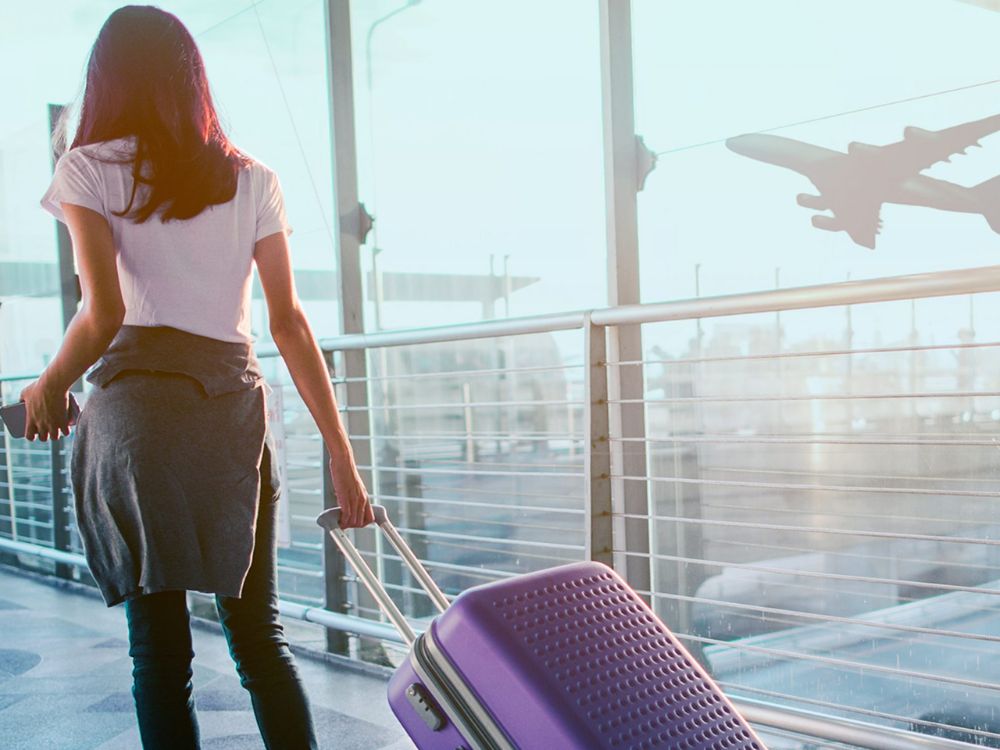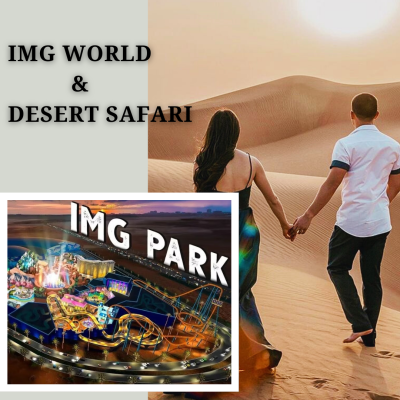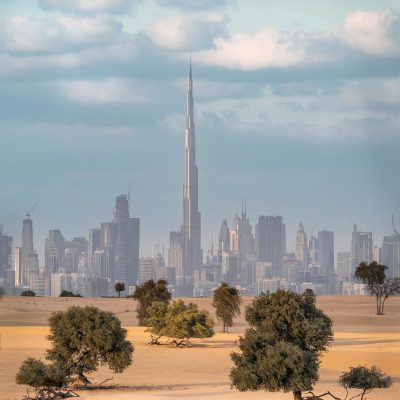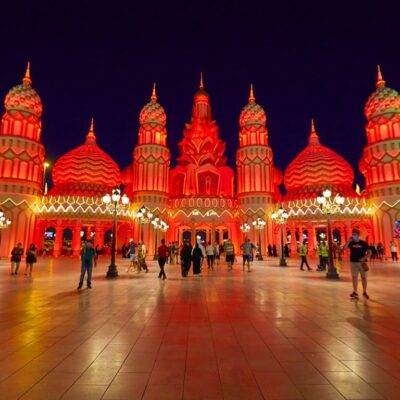Dubai, one of the most popular tourist destinations in the world, is a city of extremes. From the tallest building in the world to the largest shopping mall, Dubai is a city that is always striving to be the best. As a first-time visitor, there are many things to consider to ensure you make the most of your trip. In this guide, we’ll cover some of the essential tips and information to help you plan your visit to Dubai.
1. When to Visit Dubai:
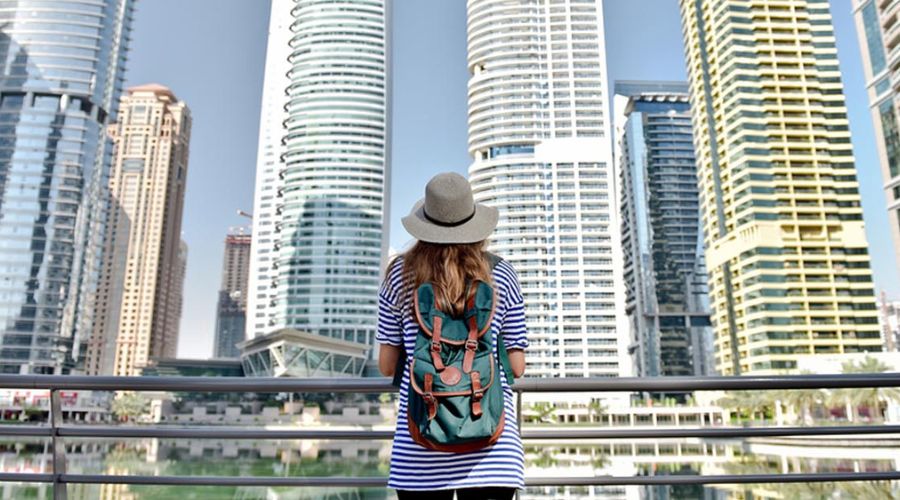 Dubai is a city that can be visited year-round, but the best time to visit is from November to April. This period offers the most pleasant and comfortable weather for outdoor activities and sightseeing. The temperature averages around 25°C, making it an ideal time to explore the city. In this article, we’ll explore why this is the best time to visit Dubai and what you can expect during this period.
Dubai is a city that can be visited year-round, but the best time to visit is from November to April. This period offers the most pleasant and comfortable weather for outdoor activities and sightseeing. The temperature averages around 25°C, making it an ideal time to explore the city. In this article, we’ll explore why this is the best time to visit Dubai and what you can expect during this period.
Weather:
One of the main reasons to visit Dubai from November to April is the weather. The temperature during this period is cooler, and there is less humidity, making it a comfortable time to explore the city. The days are warm and sunny, with temperatures ranging from 20°C to 30°C, and the evenings are cool, making it a perfect time for outdoor activities.
Events and Festivals:
Dubai hosts many events and festivals throughout the year, and the period from November to April is no exception. During this time, the city hosts the Dubai Shopping Festival, which offers discounts and promotions in shopping malls and retail outlets. The Dubai Food Festival is also held during this period, which showcases the city’s diverse culinary offerings. Other events include the Dubai World Cup and the Dubai International Boat Show.
Crowds and Prices:
Another reason to visit Dubai from November to April is that the crowds and prices are more manageable. During the summer months, the city can get very crowded and busy, making it challenging to navigate and explore. Prices for accommodation and activities are also lower during this period, making it a more affordable time to visit.
The period from November to April is the best time to visit Dubai, offering comfortable weather, exciting events and festivals, and more manageable crowds and prices. Whether you’re interested in sightseeing, shopping, or experiencing the city’s cultural offerings, Dubai has something to offer for everyone.
2. Transportation System:
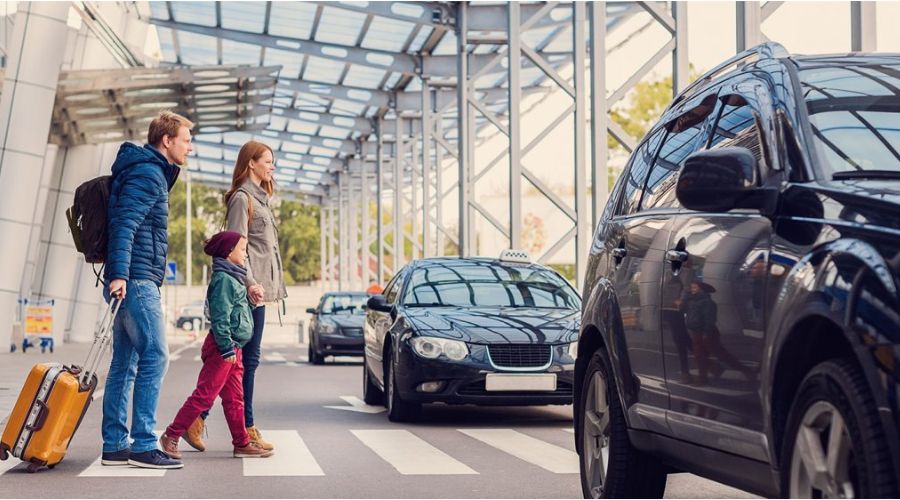 Dubai has a modern and efficient transportation system, which includes the metro, buses, taxis, and other options. The system is well-connected and easy to navigate, making it convenient for residents and visitors to travel around the city. In this article, we’ll explore the transportation system in Dubai and what you need to know to get around.
Dubai has a modern and efficient transportation system, which includes the metro, buses, taxis, and other options. The system is well-connected and easy to navigate, making it convenient for residents and visitors to travel around the city. In this article, we’ll explore the transportation system in Dubai and what you need to know to get around.
Metro:
The Dubai Metro is a rapid transit rail network that connects many of the city’s popular tourist attractions, business districts, and residential areas. The system consists of two lines, the Red and Green lines, and operates from 5:30 am to midnight, Sunday to Wednesday, and until 1 am on Thursdays, Fridays, and Saturdays. The metro is affordable, reliable, and efficient, with air-conditioned carriages, women and children-only sections, and dedicated spaces for people with disabilities.
Buses:
Dubai’s bus system is an affordable and convenient way to travel around the city. The bus network covers most of the city’s residential areas and tourist attractions, and operates from 5 am to midnight, with some routes running 24 hours. The buses are air-conditioned, with separate sections for men and women and dedicated spaces for people with disabilities. The fares for buses are lower than for taxis, making them a more budget-friendly option.
Taxis:
Taxis are a convenient and comfortable way to travel around Dubai, especially for short trips or when traveling with luggage. Taxis are available 24 hours a day and can be hailed on the street or booked through an app. Taxis are metered, with fares starting at AED 8 and increasing based on distance and time. There are also luxury taxis available, which offer a more comfortable and spacious ride.
Dubai’s transportation system offers a range of convenient and efficient options for getting around the city. Whether you prefer the metro, buses, or taxis, there is an option that will suit your needs and budget. By understanding the different options and fares, visitors can navigate the city with ease and enjoy all that Dubai has to offer.
3. Accommodation in Dubai:
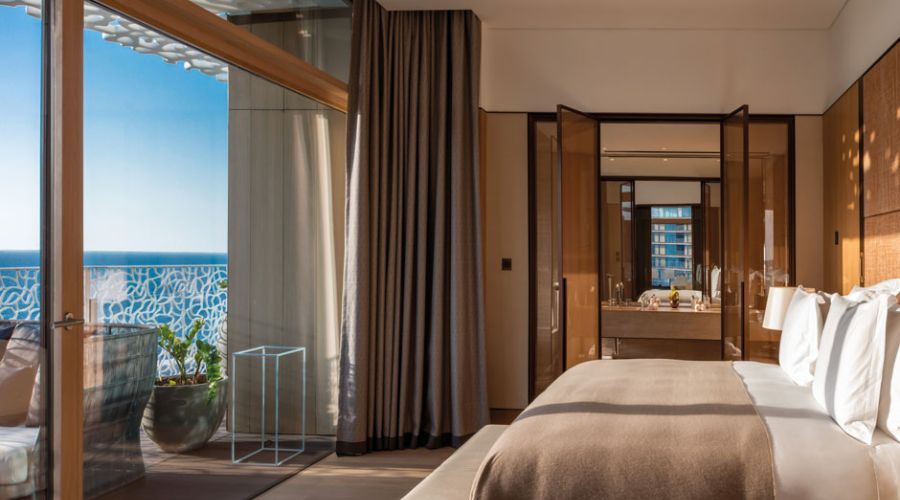 Dubai is a city that offers a wide range of accommodation options to suit every budget and preference. From luxury hotels to budget-friendly hostels, there is something for everyone. In this article, we’ll explore the different types of accommodation available in Dubai, and what you need to know to choose the best option for your stay.
Dubai is a city that offers a wide range of accommodation options to suit every budget and preference. From luxury hotels to budget-friendly hostels, there is something for everyone. In this article, we’ll explore the different types of accommodation available in Dubai, and what you need to know to choose the best option for your stay.
Hotels:
Dubai has a vast selection of hotels, ranging from budget-friendly options to high-end luxury properties. Many of the hotels are located in popular tourist areas, such as Downtown Dubai, Jumeirah Beach, and Palm Jumeirah. The hotels offer a wide range of amenities, including swimming pools, restaurants, spas, and fitness centers. The prices of hotels vary depending on the location, level of luxury, and time of year, with rates being higher during the peak tourist season.
Apartments:
For visitors looking for more space and privacy, apartments are a popular choice in Dubai. There are many serviced apartment options available, ranging from studio apartments to three-bedroom apartments. The apartments are fully furnished and equipped with a kitchen, making them a convenient option for longer stays. The prices of apartments are generally more affordable than hotels, making them an excellent option for budget-conscious travelers.
Hostels:
Dubai has a growing number of hostels that offer affordable accommodations for budget-conscious travelers. The hostels provide a range of options, from dormitory-style rooms to private rooms with shared bathrooms. The prices of hostels are generally lower than hotels and apartments, making them an excellent option for solo travelers or those traveling in small groups.
Dubai offers a wide range of accommodation options to suit every budget and preference. Whether you prefer the luxury of a high-end hotel, the space, and privacy of an apartment, or the affordability of a hostel, there is an option that will suit your needs. By understanding the different options and their prices, visitors can choose the best accommodation option for their stay in Dubai.
4. Attractions in Dubai:
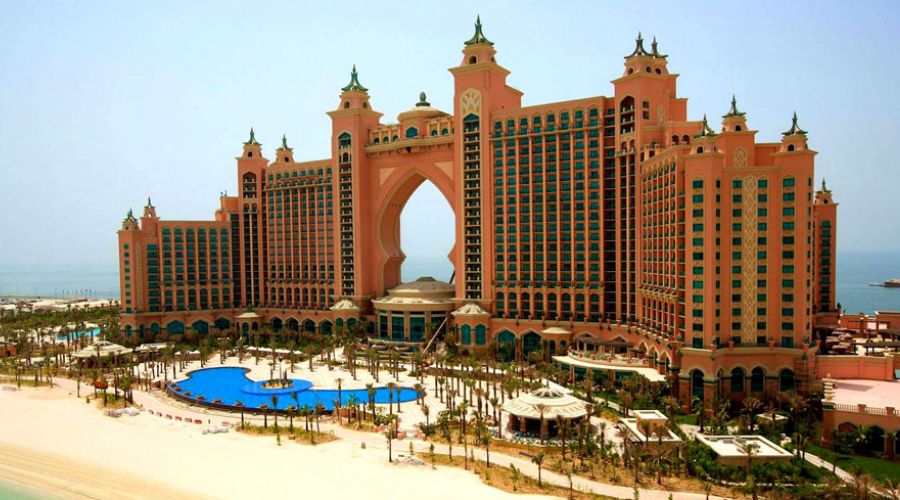 Dubai is a city that offers a wealth of attractions for visitors, from towering skyscrapers to world-class shopping and entertainment. In this article, we’ll explore some of the top attractions in Dubai, and what you need to know to make the most of your visit.
Dubai is a city that offers a wealth of attractions for visitors, from towering skyscrapers to world-class shopping and entertainment. In this article, we’ll explore some of the top attractions in Dubai, and what you need to know to make the most of your visit.
Burj Khalifa:
The Burj Khalifa is the world’s tallest building, standing at a staggering height of 828 meters. Visitors can take a trip to the top of the building, where they can enjoy breathtaking views of the city from the observation deck on the 148th floor. The Burj Khalifa is also home to the luxurious Armani Hotel, as well as a variety of dining and shopping options.
Dubai Mall:
Dubai Mall is one of the world’s largest shopping and entertainment destinations, offering over 1,200 retail stores, an ice skating rink, a cinema, and an indoor theme park. Visitors can also enjoy a spectacular musical fountain show at the mall’s outdoor fountain.
Dubai Miracle Garden:
The Dubai Miracle Garden is a must-visit for nature lovers, featuring over 45 million flowers in a variety of stunning designs and patterns. The garden is the world’s largest flower garden, and visitors can enjoy a leisurely stroll among the vibrant displays.
Dubai offers a wealth of attractions for visitors to enjoy, from iconic landmarks to world-class shopping and entertainment. By understanding the different options available and planning ahead, visitors can make the most of their visit and experience all that this vibrant city has to offer.
5. Dress Code in Dubai:
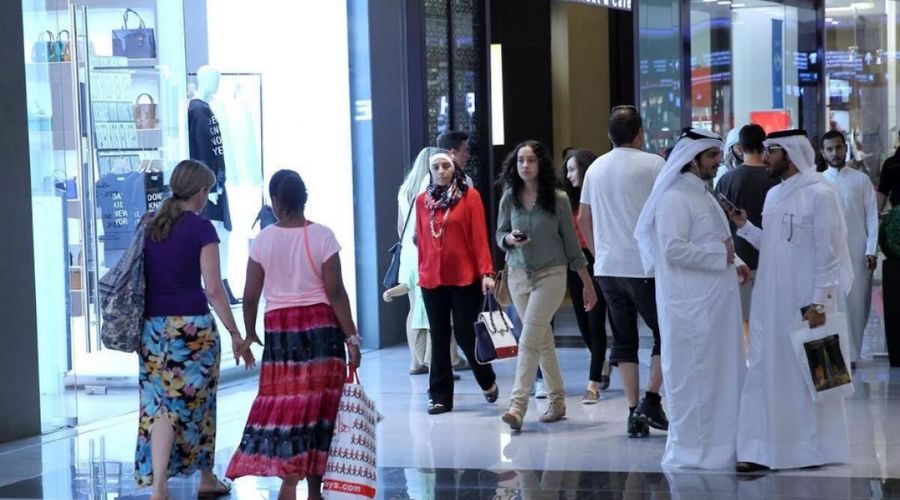 Dubai is a city that is known for its vibrant culture and tradition. As a visitor to Dubai, it’s important to understand the local customs and dress code to ensure that you show respect for the local culture and avoid any unwanted attention. In this article, we’ll explore the dress code in Dubai, and what you need to know to dress appropriately during your visit.
Dubai is a city that is known for its vibrant culture and tradition. As a visitor to Dubai, it’s important to understand the local customs and dress code to ensure that you show respect for the local culture and avoid any unwanted attention. In this article, we’ll explore the dress code in Dubai, and what you need to know to dress appropriately during your visit.
Cultural Expectations:
Dubai is a Muslim city, and as such, it’s important to be respectful of the local culture and customs. This means dressing modestly, covering your shoulders and knees, and avoiding revealing clothing. It’s also important to avoid clothing with offensive slogans or graphics, as these can be considered disrespectful.
Beaches and Pools:
Dubai is known for its beautiful beaches and luxurious pools. However, it’s important to dress appropriately when enjoying these amenities. Swimwear is generally acceptable on the beach and at pool areas, but it’s important to cover up when leaving these areas. Avoid wearing revealing swimwear when walking around the city, and bring a cover-up or change of clothes to wear when leaving the beach or pool.
Business and Formal Events:
Dubai is a hub for business and international events, and it’s important to dress appropriately for these occasions. Men should wear a suit and tie, while women should wear a modest dress or pantsuit. It’s important to avoid wearing revealing or provocative clothing in these settings, as it can be considered disrespectful.
Dubai has a unique dress code that reflects its culture and tradition. By understanding the local expectations and customs, visitors can show respect and avoid any unwanted attention during their stay. Whether you’re enjoying the beaches, attending a formal event, or exploring the city, dressing modestly and appropriately will ensure a smooth and enjoyable visit to Dubai.
6. Food and Drink Dubai:
 Dubai is a city that offers a diverse culinary experience, with a range of restaurants serving everything from traditional Middle Eastern cuisine to international favorites. In this article, we’ll explore the food and drink scene in Dubai, and what you need to know to make the most of your dining experience.
Dubai is a city that offers a diverse culinary experience, with a range of restaurants serving everything from traditional Middle Eastern cuisine to international favorites. In this article, we’ll explore the food and drink scene in Dubai, and what you need to know to make the most of your dining experience.
Traditional Middle Eastern Cuisine:
Dubai is a melting pot of cultures, and this is reflected in its food scene. Traditional Middle Eastern cuisine is a must-try, with dishes like hummus, tabbouleh, and shawarma being popular choices. For a more upscale experience, there are a number of high-end restaurants serving up modern takes on traditional Middle Eastern cuisine.
International Cuisine:
Dubai is a city that attracts visitors from all over the world, and as such, there are a variety of international cuisines available. Whether you’re in the mood for Italian, Chinese, or Japanese cuisine, there’s something for everyone in Dubai. There are also a number of celebrity chef restaurants in the city, offering up unique and innovative dining experiences.
Alcoholic Beverages:
Dubai is a predominantly Muslim city, and as such, there are restrictions on the consumption of alcohol. Alcoholic beverages can only be served in licensed restaurants and bars, and it’s important to note that public intoxication is not tolerated in Dubai. It’s also important to remember that drinking and driving are strictly prohibited in the city.
Dubai offers a diverse and exciting culinary experience for visitors, with a range of traditional and international cuisines available. While the consumption of alcohol is restricted, there are still plenty of options for enjoying a night out. By understanding the local customs and regulations, visitors can enjoy all that Dubai has to offer in terms of food and drink.
7. Etiquette:
 Dubai is a city that values tradition and respect, and as such, there are certain social norms and etiquette that visitors should be aware of to avoid any cultural faux pas. In this article, we’ll explore the social etiquette in Dubai, and what you need to know to ensure a smooth and respectful visit.
Dubai is a city that values tradition and respect, and as such, there are certain social norms and etiquette that visitors should be aware of to avoid any cultural faux pas. In this article, we’ll explore the social etiquette in Dubai, and what you need to know to ensure a smooth and respectful visit.
Greetings and Communication:
In Dubai, it’s important to greet people with respect and courtesy. Handshakes are a common form of greeting, and it’s important to address people by their formal titles, such as “sheik” or “emir”. It’s also important to avoid using your left hand for eating or handing things to others, as this is considered disrespectful.
Dress Code:
As mentioned in a previous article, the dress code in Dubai is important and visitors are expected to dress modestly and respectfully. It’s important to avoid revealing clothing and to dress appropriately for the occasion. When visiting religious sites, it’s important to dress conservatively and cover your shoulders and knees.
Public Behavior:
Dubai is a city that values respect and consideration for others, and as such, there are certain public behaviors that are expected. It’s important to avoid public displays of affection, as this is considered disrespectful in the city. It’s also important to avoid using foul language and refrain from smoking in public areas.
Understanding the social etiquette in Dubai is important to show respect for the local culture and traditions. By following these guidelines, visitors can ensure a smooth and enjoyable visit to the city. From greetings and communication to dress code and public behavior, adhering to the social norms in Dubai is key to a successful visit.
In conclusion, Dubai is a city that offers a wealth of attractions and experiences for visitors. By following these tips and being respectful of local customs and traditions, first-time visitors can make the most of their trip to this vibrant and exciting city.

